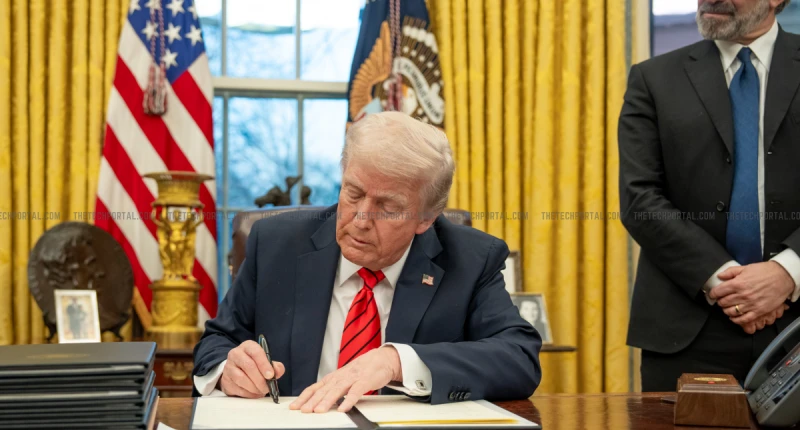Donald Trump is now betting big on science and AI-powered innovation – signing an executive order Monday that creates what the administration is calling the ‘Genesis Mission’. The initiative directs agencies to concentrate federal datasets, national laboratory computing systems, and advanced AI models into a unified platform intended to accelerate research across several strategic sectors.
The program gives the Department of Energy responsibility for assembling the network, which will combine supercomputers at national laboratories with specialized cloud systems and automated research facilities. According to senior officials, the platform will train scientific models on decades of government data covering physics, chemistry, biology, energy systems, and classified national security research, while allowing AI systems to propose and test hypotheses through linked laboratory instruments. The administration stated that the move will reorganize the federal scientific apparatus at a time when large-scale model development and high-performance computing have become closely intertwined. The order calls for an integrated environment in which simulations, predictive models, and robotic experimentation operate as a single workflow, with AI models generating research plans and validating outputs against empirical measurements.
Officials said the system will also be used in areas such as nuclear fusion, grid modernization, advanced materials development, biotechnology and semiconductor engineering. The Department of Energy is required to identify its initial dataset and model inventory within four months and demonstrate operational capability for at least one national challenge within nine months. The initiative arrives as federal agencies confront growing demands for computing capacity. AI training runs require large clusters of accelerators and extensive energy supplies, placing pressure on the electric grid. Energy Secretary Chris Wright said the Genesis Mission will be paired with efforts to expand grid capacity and apply AI to energy-system planning, arguing that improvements in energy efficiency must accompany the rise in AI workloads.
The mission includes a substantial private-sector component. The administration has been in discussions with major hardware firms, including Nvidia, Dell Technologies, Hewlett Packard Enterprise, and Advanced Micro Devices, over potential contributions to future supercomputing systems. Officials pointed to recent private-sector announcements as a model for further expansion, noting that new federal-industry partnerships will be necessary to support the scale of computing envisioned under the order.
The program’s core infrastructure will center on systems already being built at the Oak Ridge National Laboratory, part of a broader federal effort to develop sovereign AI supercomputers. Those machines, using hardware supplied by HPE and AMD, are being positioned as the flagship systems for the administration’s national AI strategy and will form the backbone of the Genesis platform. The executive order also reiterates the administration’s position that the US must
Genesis builds on several policy changes enacted earlier this year. The White House revoked a Biden-era requirement mandating model-safety disclosures by companies developing frontier systems, saying that the previous framework slowed research. Agencies were instead directed to adopt evaluation protocols focused on engineering reliability, scientific reproducibility and national-security risk management.
The administration has also restructured oversight bodies to focus on the technical competitiveness of domestic AI developers. Officials said Monday that safety mechanisms for Genesis will rely on controlled computing environments, strict classification rules and oversight protocols already used across federal laboratories. Access to controlled datasets will require clearance, while open datasets will remain available for academic and commercial research.
The Tech Portal is published by Blue Box Media Private Limited. Our investors have no influence over our reporting. Read our full Ownership and Funding Disclosure →






